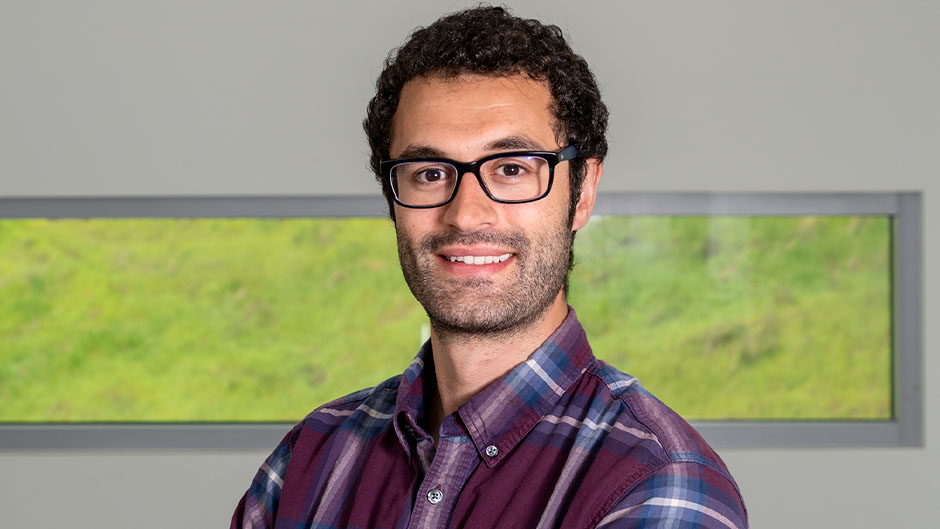A team of researchers composed of Dr. Luis Ruiz Pestana from the University of Miami, Dr. Diana Fusco from the University of Cambridge, and Dr. Carolina Tropini from the University of British Columbia won the grant from the Human Frontier Science Program (HFSP) to push their promising research forward. The HFSP supports research by teams of accomplished scientists combining their areas of expertise in innovative ways. “This is the most interdisciplinary team I’ve been a part of,” said Dr. Ruiz Pestana from the University of Miami College of Engineering. “The idea of the grant is to bring a fresh, interdisciplinary approach to something we’ve never worked on before.” The HFSP believes in “science without borders” and funds high risk, high reward projects from international teams of scientists and laboratories. This year, the HFSP funded the top 4% of applicants. Past HFSP-funded projects have resulted in better vaccines, adhesives, and cancer treatments with 28 awardees winning the Nobel Prize.
The award of the HFSP grant is consistent with Miami Engineering’s vision of establishing a robust international alliance. Leading engineering schools across the globe are partnered with Miami Engineering to work towards understanding and tackling global challenge problems.
Dr. Ruiz Pestana, Assistant Professor at the Department of Civil and Architectural Engineering and the Dr. Reza and Georgianna Khatib Endowed Chair at University of Miami, will serve as a co-principal investigator on the project titled, “Biofilm heterogeneity as an evolutionary mechanism for resilience to complex environments.” This research will commence this year and may lead to breakthroughs in how we use biofilms beneficially as well as how we can eliminate the harmful ones. Examining the behavior of biofilms in this interdisciplinary way can have a wide range of impacts, from eliminating chronic infections to rescuing habitats from pollution.
Pratim Biswas, Dean of the College of Engineering at the University of Miami, stated, “It is great that Dr. Luis Ruiz Pestana’s work is being recognized. He is a star junior faculty member in Miami Engineering and is off to a great start. Luis is an expert in molecular modeling and simulation and his research is focused on understanding the amazing properties of nanostructured materials. He will use these skill sets to study biofilm systems, and the improved understanding will allow control of biofilms for both useful applications and prevent them in harmful scenarios.”
Biofilms can be used by humans to treat wastewater, prevent corrosion, and increase agricultural productivity. However, biofilms can become harmful as well, causing illness when they proliferate on surfaces in food production, medical settings, and ventilation systems.
The $1.24 million grant will fund three years of research into how bacterial biofilms grow and why they can successfully thrive in hostile environments. “What’s exciting about this project, for me, is trying to understand the feedback between biology and mechanics,” said Dr. Ruiz Pestana. “The shape of these biofilms is affected by how the cells push on each other as they grow. These are mechanical forces. Biofilms are living tissues, but mechanics is very important to how these things develop.”
As Dr. Ruiz Pestana embarks on this project, he brings to the team his multidisciplinary background in multiscale modeling, computational chemistry, engineering mechanics, and simulating complex nanostructured materials. In ACS Nano, an international nanoscience journal, he recently published a paper titled, “Evaporation of Water Nanodroplets on Heated Surfaces: Does Nano Matter?” The paper investigated how the size of a water droplet changes its behavior during evaporation, finding how physics change when working with nanoscale systems.
His ongoing research also includes work funded by the National Science Foundation investigating new building materials that could replace concrete, which could cut the heavy emissions caused by cement production. In another project related to concrete and infrastructure materials, his research focuses on learning more about the mechanics of glasses. “At the microstructural level, cement can be considered a glass—not unlike the glasses that make your windows,” Dr. Ruiz Pestana explained. “In engineering and physics, glasses are just amorphous or disordered structures. We currently don’t understand what the relationship is between the structure of the glass and its properties. So, when you apply a load to these materials, how do they deform? What are the weak points? Addressing these questions is key to understanding the mechanical response of cement.”
Across his many research endeavors, his computation skills enable unprecedented exploration. Without having to go through an extended cycle of trial-and-error, computation allows researchers to build materials with the properties they’re looking for. “Computation allows you to investigate materials that haven’t been made yet,” he said. “I can study the behavior of new materials under virtually any environmental condition, which is just simply out of reach to experiments. Simulations are an ideal testbed for material discovery and design.”
Over the next three years, the HFSP grant will allow Dr. Ruiz Pestana and his fellow researchers to break down the barriers between their disciplines, producing groundbreaking insights on the success and resilience of bacterial biofilms.

